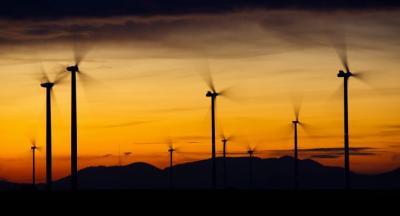A short time ago, Finland’s very first wind power turbines were dismantled after nearly 30 years in service. Much of the material is easy to recycle – it's mostly steel. But the blades, the largest up to 90 meters long and close to 10 tonnes in weight, are made with thermoset FRPs that have so far been considered unrecyclable.
Together with the 28 Ecobulk partners, the possibilities of re-using and recycling bulky composite products are being explored in the construction, automotive and furniture industries.
Markku Vilkki, CEO of Conenor and demonstration manager for the H2020 project, Ecobulk, wants to demonstrate that it is not only possible, but also profitable.
“This is not just a problem for turbine blades. Composite materials are a fast-growing choice for many applications due to the excellent weight to strength ratios, excellent durability, and highly flexible moulding and manufacturing techniques,” he explained.
“The analysts of Ceresana expect the global market for C-FRP and G-FRP to increase to a volume of over 9.98 million tons by 2024. But they very difficult, and in some cases considered impossible, to recycle,” Vilkki continued.
According to the CEO most end up in landfills – and that’s something that needs to be resolved.
“As this is great obstacle not only to the circular economy but also to more widespread use of these materials that otherwise can have great environmental benefits – for example in vehicles, a 10% reduction in weight can result in 6-8% reduction in fuel consumption,” he said. “Recycling composites is a great obstacle not only to the circular economy but also to more widespread use of these materials that otherwise can have great environmental benefits – for example in vehicles, a 10% reduction in weight can result in 6-8% reduction in fuel consumption, and composites are great materials for reducing weight.”
Together with the Ecobulk partners, the possibilities of re-using and recycling bulky composite products are being explored.
At Delft University of Technology (TUDelft), Professor Ruud Balkenende and his team of researchers, are experimenting with a large sample of wind turbine waste that was supplied by project partner Virol.
So far their approach is to use the waste to build new products, and through this experience learn how we can improve the original materials for better and easier re-use at the first end-of-life stage.
In his labs in Conenor, Vilkki has already produced samples of wood composite extrusion profiles containing 20% FRP waste from wind turbines. While these still need more thorough testing, early results show that these could well be used in lightweight construction applications.
According to TUDelft, a design that does not consider end-of-life is not complete.
While still at an early stage, the four year Ecobulk aims to demonstrate innovative approaches to integrating composite materials and products into the circular economy. Across Europe 28 partners will be combining existing production methods with innovative materials, treatments and logistics to prove the technical and economic feasibility of including these challenging materials in the Circular Economy.
Central to the Ecobulk approach, is that the design and business model aspects need to be better integrated into production to enable circular economy features in products.
For more on the project don’t miss the May/June issue of Waste Management World. Subscribe HERE
| A WasteManagementWorld release || March 26, 2018 |||




